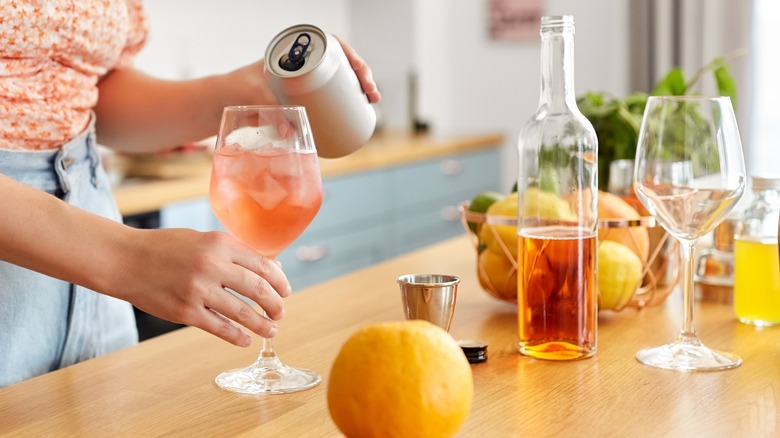Does Canned Wine Actually Expire?
It's an age old quandary — should I eat this, or has my food gone bad? There's been an explosion of best-by, expiration, and sell-by dates stamped on every edible product you can imagine, including non-reactive minerals like salt. So what should you actually believe about the expiration date on your can of wine? The answer is not as straightforward as you might hope.
Many cans of wine aren't even labeled with any kind of date, because that's not one of the twelve mandatory items that must be declared according to the Tax and Trade Bureau, which regulates such things. Any statement is voluntary — so why even add a date at all? It seems that the can manufacturers will only warranty the containers for about a year, which is the basis for most expiration declarations. That's not to say the wine will necessarily taste good or bad after that date (or even before) — there are many factors in play, but the decision is really up to your tastebuds. Bad-tasting wine is rarely harmful, merely not enjoyable.
Life's too short to drink bad wine
Wine that's gone bad is identified by off tastes, smells, or colors. That process usually occurs over time, yet you won't see expiration dates on glass bottles of wine. That's because many bottles of wine actually get better as they age. Some canned wine producers have found that their wine is remarkably stable over the course of a few years, too. That means if you've missed the expiration date on a canned wine, it's still worth cracking it open to see how it tastes.
Even if the expiration date is not a dire warning alarm, that does not mean you have to suffer through any glass of wine that's not great, however. Wineries put their wine in cans for immediate consumption, not for keeping in cobweb-strewn cellars, and that should be the main thing to keep in mind. Buy what you'll drink in a reasonable period, and you can rely on a delicious pour that's exactly what the winemaker intended.

